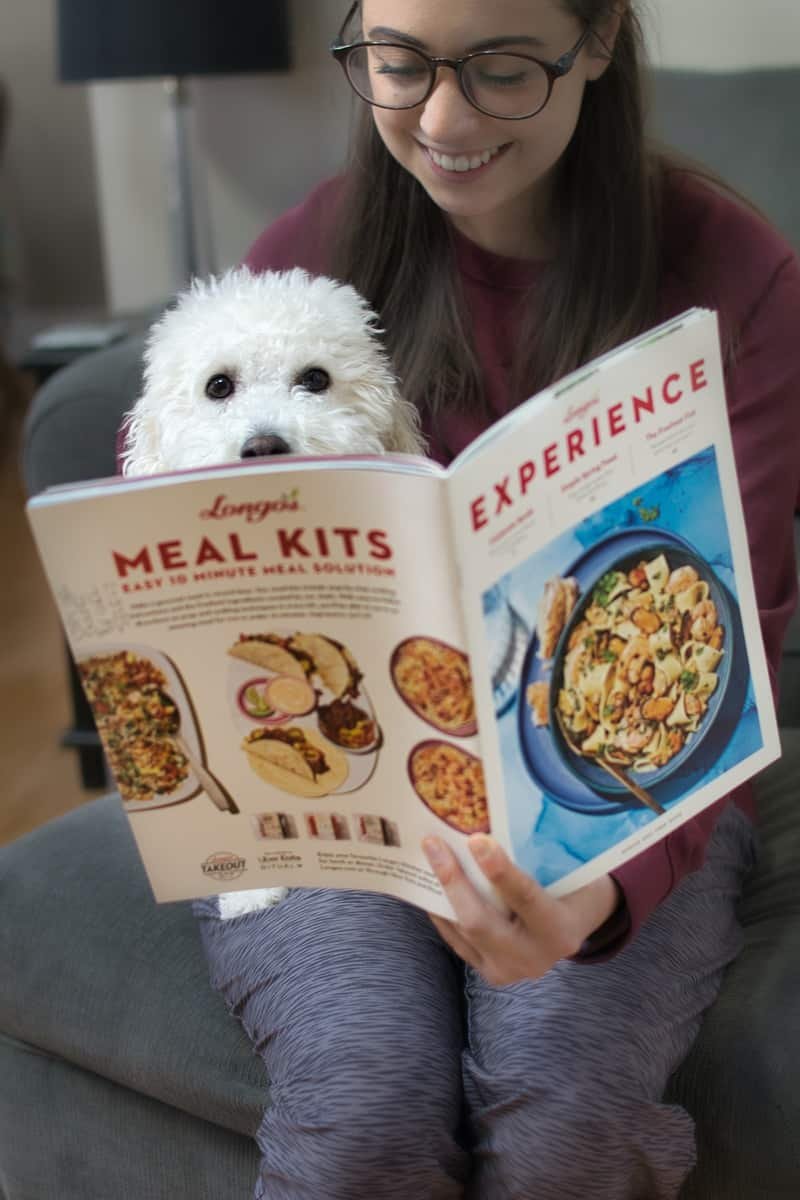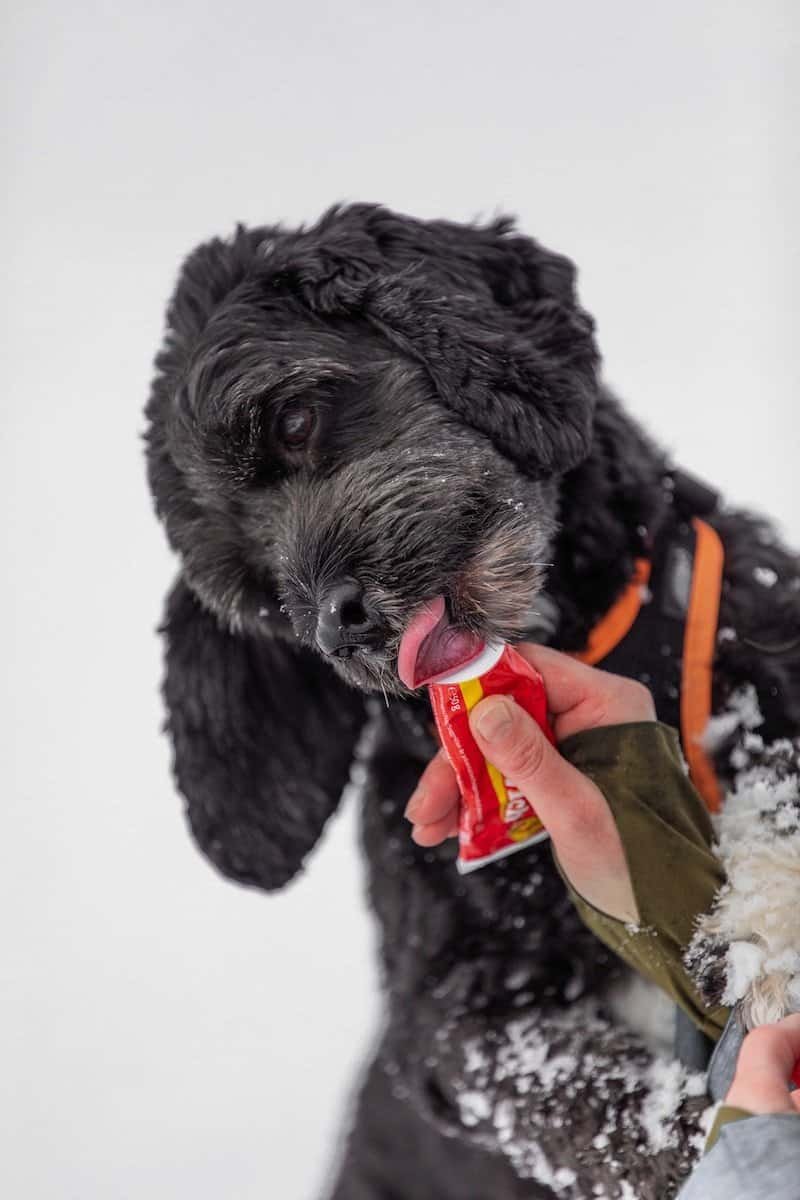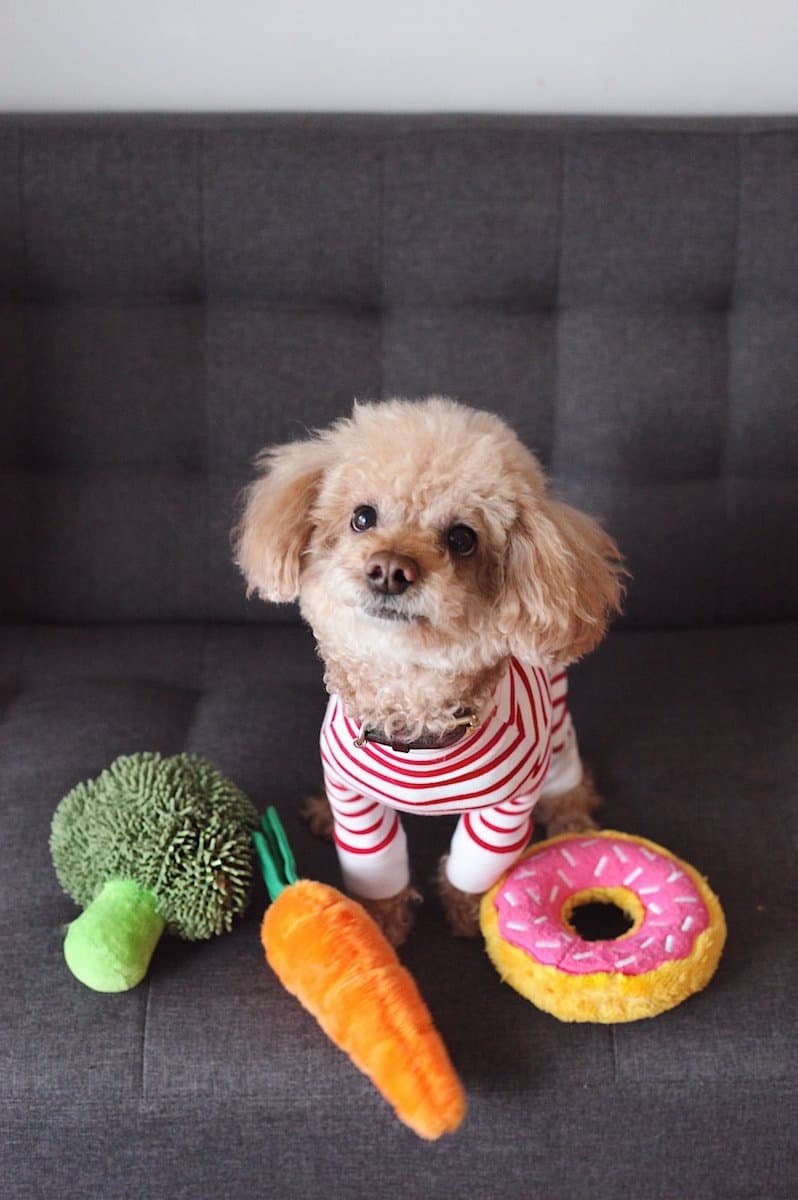Creating a balanced and nutritious diet for your poodle is essential for their overall health and well-being. As a responsible pet owner, it’s important to understand your poodle’s nutritional needs and provide them with a diet that meets those needs. With the right knowledge and approach, you can ensure that your furry companion is getting the right amount of nutrients, vitamins, and minerals to keep them healthy.
Understanding your poodle’s nutritional needs is the first step in creating a balanced diet. Different poodles have different dietary needs based on their age, weight, and activity level. Factors such as underlying health conditions, allergies, and intolerances also need to be considered. By determining your poodle’s dietary needs, you can create a diet plan that is tailored to their specific needs.
Providing your poodle with a balanced and nutritious diet involves incorporating essential nutrients into their diet, choosing the right dog food, incorporating fruits and vegetables, understanding portion sizes and feeding frequency, maintaining a healthy weight, and addressing special dietary needs. By following these guidelines, you can ensure that your poodle is getting the right nutrients to maintain their overall health and well-being.
Key Takeaways
- Understanding your poodle’s nutritional needs is crucial in creating a balanced diet.
- Incorporating essential nutrients, choosing the right dog food, and understanding portion sizes are important in maintaining a healthy diet for your poodle.
- Addressing special dietary needs and maintaining a healthy weight are also essential in keeping your poodle healthy.
Understanding Poodle Nutrition
As a poodle owner, it’s important to understand your dog’s nutritional needs. Providing a balanced and nutritious diet is crucial for your poodle’s overall health and longevity. Proper nutrition can also help prevent health issues such as obesity, diabetes, and heart disease.
To ensure that your poodle is getting the right nutrition, it’s recommended that you consult with a veterinarian or veterinary nutritionist. They can help you create a diet plan that meets your poodle’s specific nutritional needs based on factors such as age, weight, and activity level.
Poodles require a balanced diet that contains all the necessary nutrients, such as proteins, carbohydrates, fats, vitamins, and minerals. These nutrients are essential for a poodle’s growth, development, and energy levels. Poodles also require plenty of water in their diet to stay hydrated and healthy.
When it comes to protein, poodles need a diet that is rich in this nutrient. Depending on the age and weight of the poodle, it will need 18 to 22 percent of proteins. Poodles also require fats, which are a good source of energy and help with the absorption of vitamins. A diet that contains around 5 to 8 percent fat is recommended for poodles.
Carbohydrates are also important for poodles as they provide energy and fiber. Good sources of carbohydrates for poodles include grains, vegetables, and fruits. Poodles also require vitamins A, B1, E, and D, as well as minerals such as calcium, phosphorus, and zinc.
It’s important to note that each poodle is unique and may have different nutritional needs. Factors such as age, weight, and activity level can all affect a poodle’s nutritional needs. Additionally, some poodles may have specific dietary requirements due to health issues or allergies.
In summary, understanding your poodle’s nutritional needs is crucial for their overall health and well-being. Consult with a veterinarian or veterinary nutritionist to create a balanced and nutritious diet plan that meets your poodle’s specific needs. Provide your poodle with a diet that is rich in proteins, fats, carbohydrates, vitamins, and minerals, and ensure that they have plenty of water to stay hydrated.
Determining Your Poodle’s Dietary Needs
Creating a balanced and nutritious diet for your poodle starts with understanding their dietary needs. Every poodle is unique, and their dietary requirements will vary based on several factors, including age, size, breed, weight, energy level, activity level, development, health, allergies, obesity, and overweight.
Age
Puppies have different nutritional needs than adult poodles. During the first year of life, puppies require more protein, fat, and calories to support their growth and development. As they mature, their dietary requirements change, and they need fewer calories and more nutrients to maintain their health.
Size
Poodle size also plays a role in determining their dietary needs. Toy poodles need fewer calories than standard or miniature poodles. It’s essential to choose a diet that is appropriate for your poodle’s size to prevent overfeeding or underfeeding.
Weight
Maintaining a healthy weight is crucial for your poodle’s overall health and well-being. If your poodle is overweight or obese, you may need to adjust their diet to help them lose weight. A veterinarian can help you determine the appropriate weight for your poodle and recommend a diet plan to achieve and maintain a healthy weight.
Energy Level
Your poodle’s energy level also affects their dietary needs. If your poodle is highly active, they may need more calories to support their activity level. Conversely, if your poodle is less active, they may need fewer calories to maintain their weight.
Development
Poodle puppies and seniors have different nutritional requirements than adult poodles. Puppies need more protein, fat, and calories to support their growth and development, while seniors may need fewer calories and more nutrients to maintain their health.
Health
If your poodle has health issues, such as allergies or digestive problems, you may need to choose a specialized diet to accommodate their needs. A veterinarian can help you determine the appropriate diet for your poodle based on their health condition.
Determining your poodle’s dietary needs is the first step in creating a balanced and nutritious diet. By considering factors such as age, size, weight, energy level, development, and health, you can choose a diet that meets your poodle’s unique requirements. Consult with your veterinarian to ensure that your poodle’s diet is appropriate for their needs.
Essential Nutrients for Poodles
Creating a balanced and nutritious diet for your poodle is essential for their overall health and wellbeing. Poodles require a variety of essential nutrients to maintain a healthy body weight, strong immune system, and optimal energy levels. In this section, we will discuss the essential nutrients that your poodle needs to thrive, including proteins and fats, carbohydrates and fiber, vitamins and minerals, and water.
Proteins and Fats
Proteins and fats are essential macronutrients that your poodle requires for proper growth and development. High-quality proteins, such as those found in meat, fish, and eggs, provide the building blocks for strong muscles, healthy skin, and a shiny coat. Fats, including healthy fats like omega-3 and omega-6 fatty acids, are important for maintaining healthy skin and coat, as well as providing a source of energy. When selecting a protein source for your poodle, choose lean meats like chicken or turkey, and avoid fatty cuts of meat.
Carbohydrates and Fiber
Carbohydrates and fiber provide your poodle with energy and promote healthy digestion. Whole grains, such as brown rice and oats, are a great source of carbohydrates and fiber. Vegetables and fruits also provide important sources of fiber and nutrients. Be sure to choose high-quality carbohydrates, such as whole grains and vegetables, and avoid processed foods that contain refined sugars.
Vitamins and Minerals
Vitamins and minerals are essential micronutrients that your poodle needs to maintain a healthy body. Vitamins A, C, D, E, and K are all important for promoting healthy skin, eyesight, and immune function. Calcium and phosphorus are important for strong bones and teeth, while sodium is important for maintaining proper fluid balance in the body. Be sure to provide your poodle with a variety of nutrient-dense foods, including fruits, vegetables, and lean meats.
Water
Water is essential for all living creatures, including your poodle. It helps to regulate body temperature, transport nutrients throughout the body, and flush out waste products. Be sure to provide your poodle with fresh, clean water at all times, and encourage them to drink plenty of water throughout the day.
In conclusion, providing your poodle with a balanced and nutritious diet is essential for their health and wellbeing. Be sure to include a variety of high-quality proteins, healthy fats, carbohydrates and fiber, vitamins and minerals, and water in their diet. By doing so, you can help ensure that your poodle lives a long, healthy, and happy life.
Choosing the Right Dog Food
Choosing the right dog food is crucial to ensure your poodle’s health and well-being. When it comes to feeding your poodle, you have two options: commercial dog food or homemade meals. Both options have their advantages and disadvantages, and it’s up to you to decide which one is best for your furry friend.
Commercial Dog Food
Commercial dog food is the most popular option for most dog owners. It’s convenient, readily available, and comes in a variety of options. However, not all commercial dog food is created equal. It’s important to read the label and understand the ingredients to ensure that the food you’re feeding your poodle is nutritionally balanced and of high quality.
When choosing commercial dog food, look for products that have quality ingredients and avoid those that contain fillers or by-products. The first ingredient should always be a high-quality protein source, such as chicken, beef, or fish. Avoid dog food that contains artificial preservatives, colors, or flavors, as these can be harmful to your poodle’s health.
Kibble is the most common type of commercial dog food. It’s convenient and easy to store, but it’s important to choose the right type of kibble for your poodle. Small breed dogs, such as poodles, have smaller mouths and teeth, so they may have difficulty chewing large kibble. Look for kibble that is specifically designed for small breed dogs.
Homemade Meals
Homemade meals are a great option for poodle owners who want to have more control over what their dog is eating. With homemade meals, you can choose the ingredients and ensure that your poodle is getting a nutritionally balanced diet. However, it’s important to note that not all homemade meals are nutritionally balanced, and it’s crucial to consult with a veterinarian or veterinary nutritionist to ensure that your poodle is getting all the nutrients they need.
When preparing homemade meals for your poodle, it’s important to use quality ingredients and ensure that the meals are nutritionally balanced. A nutritionally balanced homemade diet should include a variety of protein sources, such as chicken, beef, or fish, as well as vegetables and grains. Avoid using ingredients that are toxic to dogs, such as onions, garlic, and chocolate.
In conclusion, choosing the right dog food for your poodle is crucial to ensure their health and well-being. Whether you choose commercial dog food or homemade meals, make sure to read the label and understand the ingredients. Consult with a veterinarian or veterinary nutritionist to ensure that your poodle is getting a nutritionally balanced diet.
Incorporating Fruits and Vegetables
Incorporating fruits and vegetables into your poodle’s diet is crucial for their overall health and well-being. These food groups are rich in vitamins, minerals, and fiber, which can help prevent diseases and improve digestion. In this section, we will discuss some ways to incorporate fruits and vegetables into your poodle’s diet.
Vegetables
Vegetables are an essential part of a balanced and nutritious diet for your poodle. They provide essential vitamins and minerals that are necessary for your poodle’s growth and development. Some vegetables that you can include in your poodle’s diet are carrots, green beans, and sweet potatoes. These vegetables are low in calories and high in fiber, making them a great addition to your poodle’s diet.
To incorporate vegetables into your poodle’s diet, you can add them to their meals or give them as treats. You can also mix vegetables with your poodle’s regular food to increase their nutrient intake. However, it is important to note that some vegetables, such as onions and garlic, can be toxic to dogs, so it is important to avoid these vegetables.
Fruits
Fruits are also an important part of a balanced and nutritious diet for your poodle. They are a great source of vitamins and minerals and can help improve your poodle’s digestion. Some fruits that you can include in your poodle’s diet are apples, bananas, and blueberries. These fruits are low in calories and high in fiber, making them a great addition to your poodle’s diet.
To incorporate fruits into your poodle’s diet, you can add them to their meals or give them as treats. You can also mix fruits with your poodle’s regular food to increase their nutrient intake. However, it is important to note that some fruits, such as grapes and raisins, can be toxic to dogs, so it is important to avoid these fruits.
Variety is Key
It is important to provide your poodle with a variety of fruits and vegetables to ensure that they receive all the necessary nutrients. You can rotate different fruits and vegetables in your poodle’s diet to keep them interested and ensure that they receive a balanced diet.
In conclusion, incorporating fruits and vegetables into your poodle’s diet is crucial for their overall health and well-being. By including a variety of fruits and vegetables in your poodle’s diet, you can provide them with the necessary nutrients for their growth and development.
Understanding Portion Sizes and Feeding Frequency
As a poodle owner, it’s essential to understand how much and how often to feed your furry friend to maintain their health and wellbeing. Portion sizes and feeding frequency are crucial factors in creating a balanced and nutritious diet for your poodle.
Portion Sizes
Portion sizes refer to the amount of food you serve your poodle at each meal. The right portion size for your poodle depends on their age, weight, activity level, and overall health. Overfeeding your poodle can lead to obesity, which can cause health problems such as joint pain, diabetes, and heart disease.
To determine the appropriate portion size for your poodle, consult with your veterinarian. They can provide you with a feeding guide based on your poodle’s specific needs. As a general rule, a healthy adult poodle should consume around 1/4 to 1/2 cup of high-quality dog food per meal.
Feeding Frequency
Feeding frequency refers to the number of meals you serve your poodle each day. The right feeding frequency for your poodle depends on their age and activity level. Puppies require more frequent meals than adult dogs, and highly active dogs may need more frequent meals to maintain their energy levels.
As a general rule, puppies should be fed three to four small meals per day, while adult dogs can typically be fed two meals per day. However, consult with your veterinarian to determine the best feeding frequency for your poodle.
Quantities and Calories
It’s essential to keep track of the amount of food your poodle consumes each day to ensure they are receiving the appropriate amount of calories. Overfeeding your poodle can lead to weight gain, while underfeeding can result in malnourishment and health problems.
High-quality dog food brands typically provide feeding guides on their packaging that can help you determine the appropriate amount of food to serve your poodle based on their weight and activity level. Additionally, consult with your veterinarian to ensure your poodle is receiving the appropriate amount of calories for their specific needs.
Energy Levels
Your poodle’s energy level is an essential factor to consider when determining their portion sizes and feeding frequency. Highly active dogs require more calories than less active dogs to maintain their energy levels and overall health.
As a poodle owner, it’s crucial to monitor your furry friend’s energy levels and adjust their portion sizes and feeding frequency accordingly. Consult with your veterinarian if you notice any changes in your poodle’s energy levels or overall health.
In summary, understanding portion sizes and feeding frequency is crucial in creating a balanced and nutritious diet for your poodle. Consult with your veterinarian to determine the appropriate portion sizes and feeding frequency for your furry friend based on their specific needs. Keep track of your poodle’s calorie intake and energy levels to ensure they are receiving the appropriate amount of nutrition to maintain their health and wellbeing.
Maintaining a Healthy Weight
Maintaining a healthy weight is important for your poodle’s overall health and longevity. Obesity in dogs can lead to a range of health problems, including joint pain, diabetes, and heart disease. As a pet owner, it is your responsibility to ensure that your poodle is at a healthy weight.
Determining Your Poodle’s Ideal Weight
The ideal weight for a poodle depends on their size and age. It is important to consult with your veterinarian to determine your poodle’s ideal weight. Your veterinarian can also help you create a diet and exercise plan that is tailored to your poodle’s specific needs.
Feeding Your Poodle a Balanced Diet
Feeding your poodle a balanced diet is essential for maintaining a healthy weight. A balanced diet should include a variety of protein foods such as seafood, lean meats and poultry, eggs, legumes (beans and peas), soy products, nuts, and seeds. It should also be low in added sugars, sodium, saturated fats, trans fats, and cholesterol.
When choosing dog food, look for brands that use high-quality ingredients and avoid fillers and artificial preservatives. It is also important to pay attention to portion sizes and avoid overfeeding your poodle.
Exercise
Regular exercise is important for maintaining a healthy weight in your poodle. The amount of exercise your poodle needs depends on their age, size, and overall health. Consult with your veterinarian to determine an exercise routine that is appropriate for your poodle.
In addition to regular walks, you can also engage your poodle in activities such as swimming, playing fetch, and agility training. These activities not only help with weight management but also provide mental stimulation and strengthen the bond between you and your poodle.
Conclusion
Maintaining a healthy weight is essential for your poodle’s overall health and longevity. By feeding your poodle a balanced diet, providing regular exercise, and consulting with your veterinarian, you can help ensure that your poodle stays at a healthy weight.
Addressing Special Dietary Needs
As a poodle owner, you may need to address special dietary needs when creating a balanced and nutritious diet for your furry friend. Whether your poodle is a puppy or an adult dog, they may have specific dietary requirements that need to be met in order to maintain good health.
Puppies
Poodle puppies have different dietary needs than adult dogs. They require more protein, fat, and calories to support their growth and development. Make sure to feed your poodle puppy a high-quality puppy food that is specifically formulated for their nutritional needs. It should contain a balance of protein, fat, and carbohydrates, as well as vitamins and minerals.
Adult Dogs
Adult poodles have different dietary needs than puppies. They require a balanced diet that is rich in protein, healthy fats, and complex carbohydrates. Make sure to feed your poodle a high-quality dog food that is specifically formulated for their nutritional needs. It should contain a balance of protein, fat, and carbohydrates, as well as vitamins and minerals.
Digestive Issues
If your poodle has digestive issues, you may need to make adjustments to their diet. Some poodles may have difficulty digesting certain types of food, such as grains or dairy products. If your poodle has digestive issues, try feeding them a diet that is low in fat and easy to digest. You may also need to avoid certain types of food, such as dairy products or grains.
Supplements
Supplements can be a useful addition to your poodle’s diet, but they should not be used as a replacement for a balanced diet. If your poodle has specific dietary needs, such as a need for extra vitamins or minerals, you may want to consider adding supplements to their diet. However, it is important to consult with your veterinarian before adding any supplements to your poodle’s diet.
Overall, it is important to create a balanced and nutritious diet for your poodle that meets their specific dietary needs. Whether your poodle is a puppy or an adult dog, has digestive issues, or needs supplements, there are dietary adjustments you can make to ensure their optimal health and wellbeing.
Conclusion
In conclusion, creating a balanced and nutritious diet for your poodle is essential for their overall health and well-being. As a responsible pet owner, it’s your duty to ensure that your furry friend is getting all the necessary nutrients in their diet.
A balanced diet for your poodle should consist of high-quality protein, healthy fats, complex carbohydrates, and essential vitamins and minerals. You can achieve this by feeding them a variety of fresh, whole foods such as lean meats, fish, vegetables, and fruits.
It’s also crucial to avoid feeding your poodle foods that are toxic or harmful to their health, such as chocolate, grapes, and onions. Additionally, you should avoid feeding them processed foods, as they often contain high amounts of sugar, salt, and preservatives, which can be harmful to your poodle’s health.
As a pet owner, you should also be aware of the appropriate portion sizes for your poodle, as overfeeding can lead to obesity and other health problems. Consult with your veterinarian to determine the appropriate daily calorie intake for your poodle based on their age, weight, and activity level.
Overall, by providing your poodle with a balanced and nutritious diet, you can help them live a long, healthy, and happy life. Remember to always consult with your veterinarian before making any significant changes to your poodle’s diet or feeding routine.
Frequently Asked Questions
If you’re a poodle owner, you want to ensure that your furry friend is receiving the right balance of nutrients to maintain their health and wellbeing. Here are some frequently asked questions about creating a balanced and nutritious diet for your poodle.
What nutrients are essential for a poodle’s diet?
A balanced and nutritious diet for a poodle should include a variety of essential nutrients, including protein, carbohydrates, fats, vitamins, and minerals. Protein is crucial for maintaining muscle mass, while carbohydrates provide energy. Fats are important for healthy skin and coat. Vitamins and minerals help regulate bodily functions and support the immune system.
How much should I feed my poodle each day?
The amount of food your poodle needs each day depends on their size, age, and activity level. As a general rule, adult poodles should be fed twice a day and should consume between 1/2 and 1 cup of food per meal. Puppies may require more frequent feedings and smaller portions. It’s important to monitor your poodle’s weight and adjust their food intake accordingly.
What are some healthy food options for poodles?
Healthy food options for poodles include high-quality commercial dog food, fresh fruits and vegetables, lean proteins such as chicken and fish, and whole grains such as brown rice and quinoa. Avoid feeding your poodle foods that are high in fat, sugar, and salt, as well as foods that are toxic to dogs such as chocolate, grapes, and onions.
What are some common dietary restrictions for poodles?
Some poodles may have dietary restrictions due to health conditions such as allergies, kidney disease, or diabetes. If your poodle has a dietary restriction, consult with your veterinarian to determine the best course of action. Your veterinarian may recommend a specific type of food or a homemade diet that meets your poodle’s nutritional needs.
Can poodles eat human food, and if so, what are the best options?
While it’s generally not recommended to feed your poodle human food, there are some human foods that can be safe and healthy for them to eat in moderation. Some examples include cooked chicken, carrots, green beans, and sweet potatoes. It’s important to avoid feeding your poodle foods that are high in fat, sugar, and salt, as well as foods that are toxic to dogs such as chocolate, grapes, and onions.
Are there any recommended dog food brands for poodles?
There are many high-quality dog food brands that are suitable for poodles, including Royal Canin, Hill’s Science Diet, and Purina Pro Plan. When selecting a dog food brand, look for one that is specifically formulated for poodles or small breed dogs. Always read the ingredient list and nutritional information to ensure that the food meets your poodle’s nutritional needs.
A balanced and nutritious diet for a poodle should include a variety of essential nutrients, including protein, carbohydrates, fats, vitamins, and minerals. Protein is crucial for maintaining muscle mass, while carbohydrates provide energy. Fats are important for healthy skin and coat. Vitamins and minerals help regulate bodily functions and support the immune system.
“}},{“@type”:”Question”,”name”:”How much should I feed my poodle each day?”,”acceptedAnswer”:{“@type”:”Answer”,”text”:”
The amount of food your poodle needs each day depends on their size, age, and activity level. As a general rule, adult poodles should be fed twice a day and should consume between 1/2 and 1 cup of food per meal. Puppies may require more frequent feedings and smaller portions. It’s important to monitor your poodle’s weight and adjust their food intake accordingly.
“}},{“@type”:”Question”,”name”:”What are some healthy food options for poodles?”,”acceptedAnswer”:{“@type”:”Answer”,”text”:”
Healthy food options for poodles include high-quality commercial dog food, fresh fruits and vegetables, lean proteins such as chicken and fish, and whole grains such as brown rice and quinoa. Avoid feeding your poodle foods that are high in fat, sugar, and salt, as well as foods that are toxic to dogs such as chocolate, grapes, and onions.
“}},{“@type”:”Question”,”name”:”What are some common dietary restrictions for poodles?”,”acceptedAnswer”:{“@type”:”Answer”,”text”:”
Some poodles may have dietary restrictions due to health conditions such as allergies, kidney disease, or diabetes. If your poodle has a dietary restriction, consult with your veterinarian to determine the best course of action. Your veterinarian may recommend a specific type of food or a homemade diet that meets your poodle’s nutritional needs.
“}},{“@type”:”Question”,”name”:”Can poodles eat human food, and if so, what are the best options?”,”acceptedAnswer”:{“@type”:”Answer”,”text”:”
While it’s generally not recommended to feed your poodle human food, there are some human foods that can be safe and healthy for them to eat in moderation. Some examples include cooked chicken, carrots, green beans, and sweet potatoes. It’s important to avoid feeding your poodle foods that are high in fat, sugar, and salt, as well as foods that are toxic to dogs such as chocolate, grapes, and onions.
“}},{“@type”:”Question”,”name”:”Are there any recommended dog food brands for poodles?”,”acceptedAnswer”:{“@type”:”Answer”,”text”:”
There are many high-quality dog food brands that are suitable for poodles, including Royal Canin, Hill’s Science Diet, and Purina Pro Plan. When selecting a dog food brand, look for one that is specifically formulated for poodles or small breed dogs. Always read the ingredient list and nutritional information to ensure that the food meets your poodle’s nutritional needs.
“}}]}








